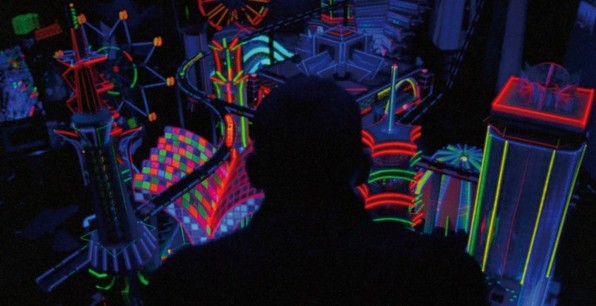 Gasper Noe's Enter The Void can only be described as a truly cinematic experience. This is a film intent on attacking the audience both with visuals and audio to create a truly unique cinematic experience. It's incredibly visceral, but that isn't to say that the film doesn't lack a narrative drive. As a matter of fact, anyone who says this film is lacking in story clearly doesnt understand what Noe is trying to accomplish. This film takes us on a psychedelic journey, but to say this is the best drug film ever made (which it is) would be a true discredit to the film's larger merits. It's a beautifully poetic film that challenges the norms of film as medium, and in doing so delivers a bizarre film that has moments of great emotional weight. The only knock on the film which I can think of is that it does run a little long, but I was still consumed with this film from start to finish that it hardly mattered. I genuinely tip my hat to Noe for trying to do something different, and for understanding that a true artist constantly tries to challenge the artistic structure in which he partakes. Personally, I will always feel that I Stand Alone is Noe's masterpiece but Enter the Void is emphatically a better film than the truly overrated Irreversible.
0 Comments
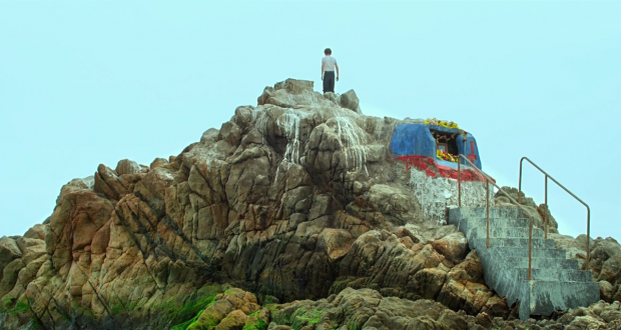 Returning to the directors chair for the first time in over a decade, Alejandro Jodorowsky's The Dance of Reality is an epic, surreal experience chronicling the filmmaker's early years. Taking place in the city the filmmaker was born, Tocopilla, a coastal town on the edge of the Chilean desert, the film depicts a traumatic childhood which Jodorowsky had to endure. The Dance of Reality is a return to form for Jodorowsky, a rich, magical experience that's profound, absurd, humorous, and emotionally affecting. More so than any of his other films, The Dance of Reality feels like an incredibly personal experience, telling a coming of age story in a way in which only Jodorowsky could. While there are plenty of filmmakers who have tackled the power and essence of memory, none have done so in such a fascinating way as Jodorowsky, whose surrealist touches and playful tone make a truly unique experience. The film is a spiritual almost metaphysical experience about identity and discovering oneself, that is portrayed through both this young boy and his headstrong father, who begins to realize the principles he has always stood for are bullshit, living in the guile of the tyrant's he praised. The Dance of Reality isn't perfect, at times suffering from pacing issues and a somewhat bloated running time, but what Jodrowsky has accomplished far outweighs the films faults, being a evocation of this unique man's past that encapsulates the "dance" that's life as we know it. 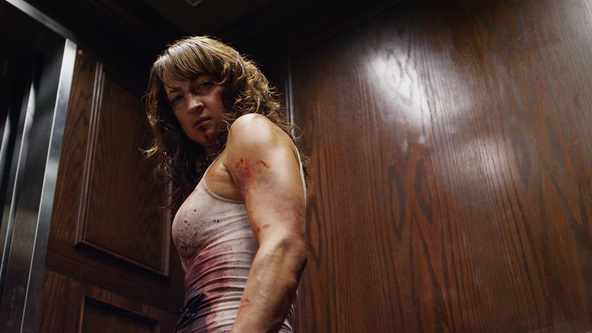 Josh C. Waller’s Raze begins with a young woman waking up in a dark, desolate room that’s dimly lit by an ominous red light. She has no idea how she arrived at this destination but she soon discovers that she is in for the fight of her life. It turns out that she is just one of fifty women who have been kidnapped by a diabolical husband and wife, who want to use them for entertainment purposes. These women are forced into death match style fights in order to entertain an extremely rich clientele who seek new thrills. Of course, these woman could refuse to fight but if they choose that path, their loved ones will be exterminated. Raze is a horror film with exploitation-based ambitions but unfortunately it comes off as little more than a somewhat entertaining Hostel knock-off. It’s a film that doesn’t know what it wants to be, dancing the line between exploitative fun and grim drama and in doing so, Raze truly fails on both levels. The film works best during its fight sequences, with some impressive fight choreography that is brutal, never backing away from capturing the primal-level of violence a fight to the death would entail. Unfortunately not much else works in Raze, with the film being full of uninteresting characters, including its main protagonist, a mundane screenplay, and a generic narrative. In terms of characters, the one exception would be the evil husband and wife duo that seem to grasp the type of film they are in, delivering delightfully twisted performances. Raze is a film that is sure to appeal to some gore hounds and fans of the old-school “Women in Prison” films but anyone else will have a hard time finding enjoyment from this rather dull piece of sadism. 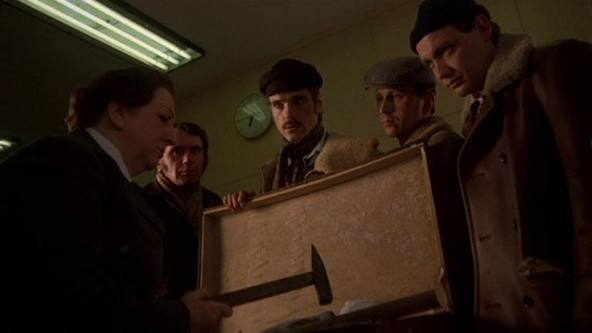 Nowak, a polish immigrant, leads a group of four immigrant workers into London in an effort to find work. Lured by the notion of earning a month's wages in a mere week, the men hope to bring their earnings back to their families in Poland. While away, Poland falls into political turmoil with the military imposing martial law and outlawing the unions. Stranded in a foreign country, Nowak conceals the truth about the current state of Poland from the other workers in an effort to keep them focused. With the pressure mounting, Nowak must find a way to complete the job and help his men get back to their loved ones before it's too late. Jerzy Skolimowski's Moonlighting is a gripping character drama that is part political allegory, part textbook example of how to effectively create suspense. This is a film centered around the main protagonist and thankfully and unsurprisingly Jeremy Irons doesn't disappoint. As great as Irons is in many films I can say unequivocally that this is his greatest performance. This is a man that slowly and systematically begins to suffer and breakdown from the increasingly bleak circumstances of the world around him. Irons captures this character with resolve, demonstrating the fragility of a strong-willed man being pushed to the edge by things completely out of his control. Nowak knows the perilous situation these men have found themselves in but he must keep it all to himself, like a weight slowly pushing him beneath the surface. He believes he knows what is best for his men but in actuality his best efforts to "protect them" only further exacerbate the situation (hence the political allegory). Skolimowski's direction is stylish and impressive, per usual, but his ability to create an escalating suspense throughout the narrative is truly something special. 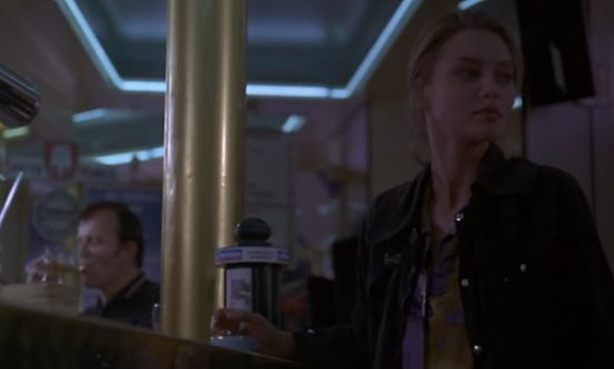 Claire Denis' I Can't Sleep is a film examining multiple stores in the confines of the multiethnic neighborhoods of Paris. The first narrative thread is centered around Daiga, an extremely beautiful young woman, who has recently emigrated from Lithuania to Paris. With no money or possessions to her name, Daiga is looking for a place to stay and work in Paris. The other major narrative thread centers around a family of Carribean immigrants living in the same area. Theo, the older brother, is a struggling musician who does carpentry to pay the bills while his brother Camille suffers from serious problems. Claire Denis' I Cant Sleep is a haunting study of longing, estrangement and disconnection that uses a group of fragmented characters to capture the true feeling of loneliness. While these characters live in the same vicinity of each other, and there paths routinely cross, they might as well live miles away with each being stuck in their own world of worry. One could certainly make an argument that Denis' film is commentary on France's immigration policies but that seems to oversimplify Denis' bigger goal, capturing the cultural division and marginalization of these people. For example, Daiga's limited knowledge of French is repeatedly exploited by those around her, while Theo deals with the distrust of his neighbors after interrupting a domestic dispute. Subverting expectations, I Can't Sleep creates a case for how alienation can lead to violence, using the truly unforgettable character Camille to do so. This is a film of narrative ellipses, fragmented sequences, and no concrete answers, with Claire perfectly capturing the difficulty of assimilation in a increasingly alienating society. 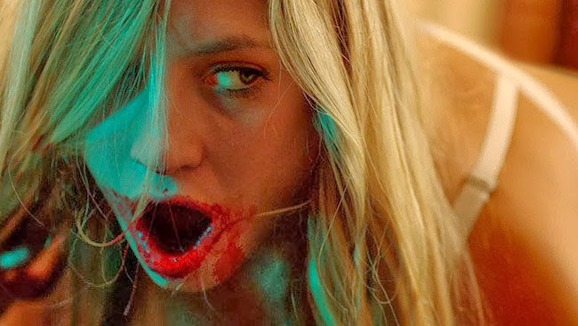 Maddy lives a reclusive existence in high school, plotting revenge against the captain of the high school football team for reasons unknown. In an effort to get revenge, Maddy becomes a member of the cheerleading squad, befriending this elite group of high school ladies whom she convinces to help her with her revenge. After a late-night party, their plan for revenge goes terribly wrong, leaving all of the ladies dead but a sinister power intervenes, bringing the girls back to life in order to finish what they started. Lucky McKee's All Cheerleaders Die is a self-aware horror comedy that manages to combine the dark comedy elements of a film like Heathers with supernatural elements of the witchcraft and zombie genres. It's as strange a film as it sounds, with McKee delivering his own brand of pop horror entertainment featuring one liners and a nice amount of unsettling violence. What makes McKee's All Cheerleaders Die stand apart from many similar romps is its thematic approach, being a story of female empowerment at its core. It's rare for a film like this to deliver strong female characters with All Cheerleaders Die portraying characters that are both strong and smart, intent on bringing down the captain of the high school football team who has clearly committed many crimes against woman. On a symbolic level, one could make an argument that this football player personifies the oppressive male archetype, with McKee making a film that speaks to the importance of female empowerment. I would imagine some would say I'm clearly reading into this too much but given Lucky McKee's track record of delivering strange and thought-provoking horror, I truly believe All Cheerleaders Die has intentions that go beyond simply entertaining the viewer. 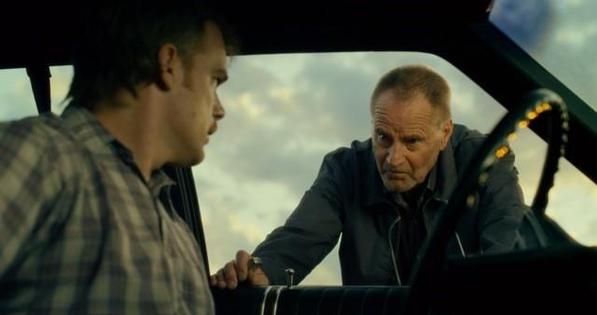 Richard Dane is a happy family man, living in East Texas with his loving wife and young son. One night, while investigating noises in his home, Richard shoots a low-life burglar, Freddy Russell, standing in his living room. The investigation is swift, leaving Richard a small town hero in the process. Dane struggles with the notion that he killed a man, finding himself consumed by fear when the burglar's ex-con father, Ben, comes rolling into town for vengeance. Jim Mickle's Cold in July is a sweaty, gritty, southern noir that excels at nearly everything it sets out to do. Cold In July is well written, well paced, and well executed throughout, leading to a stellar finale reminiscent of the final shootout in John Flynn's criminally underrated Rolling Thunder. This is a throwback film in that regard, where the violence is very real, making the viewer feel every punch and shotgun blast. The less you know going in the better with this film, as Jim Mickle's thriller does the genre proud while simultaneously subverting expectations whenever it can. The cast is phenomenal from top to bottom but Sam Shepard steals the movie with his fantastic performance. Classifying Cold In July as a revenge thriller isn't doing this film enough justice, as I found myself enamored and deeply affected by the paternal nature of the story. Cold in July is not a film about vengeance but a film about fathers and sons, capturing the strong emotional attachment one has with the person they bring into the world. With fantastic performances all around, Jim Mickle has created a stellar southern noir that I would argue is his best film yet. 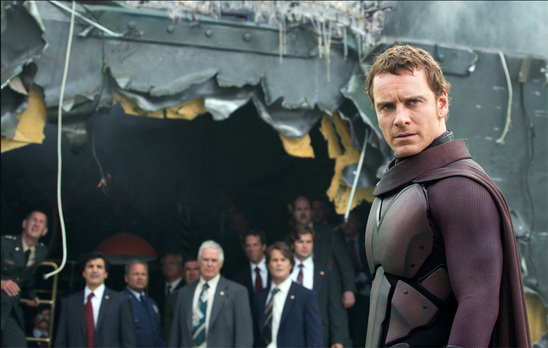 Beginning in the not so distant future, X-Men: Days of the Future Past opens in a desolate, apocalyptic future where mutants and humans alike are near extermination. Sentinels, extremely powerful robots who were created by humans out of fear of mutants now hunt everyone. In an effort to stop this systematic extinction of humanity, Xavier and Magneto, among the other remaining survivors, concoct a plan that entails sending Wolverine back in time to the 1970s in an effort to stop the creation of the Sentinels before it begins. Seeking the help of the younger Xavier, Wolverine discovers a broken version of his greatest mentor, who desperately needs to rediscover hope. Bryan Singer's X-Men: Days of the Future Past is not a perfect film by any means, but when it comes to comic book films, it's a fast-paced, intelligent film that honor's the emotional weight of its characters. Those looking for a carbon copy retelling of the comic book's story will be extremely disappointed but Singer captures the family dynamics and emotional core of the X-men universe, making it arguably the best X-men movie to-date. One of the most impressive aspects of the film is how concise and easy to digest it all is, especially considering its time-travel, future/past timeline. Days of Future Past could have easily become an incoherent, overly-convoluted mess but Singer keeps things humming along smoothly, perfectly understanding what's important and what's not. Perhaps even more importantly, Days of the Future Past doesn't feel the need to reintroduce characters to the audience, giving it the ability to jump right into the emotional and moral complexities that make X-men one of the best comic book stories. The trend starting with First Class, Days of Future Past is about the struggle between Magneto and Xavier over how things should be handled, with every mutant needing to make their own decision of rather to be a hopeful pacifist or aggressive elitist. While the film does have a few nonsensical moments, X-Men Days of the Future Past features well-crafted action sequences, sly humor, and a central understanding of the characters and world, making it an impressive spectacle. 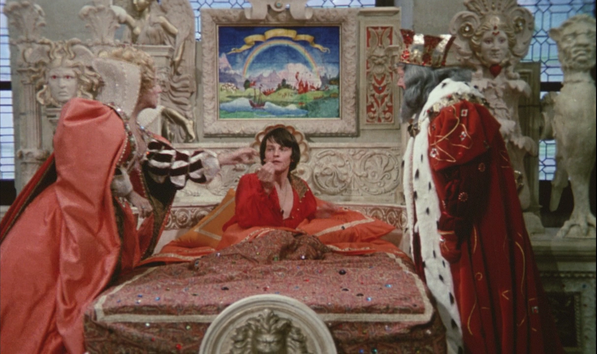 Based on a fairy tale by Charles Perrault of Cinderella fame, Jacques Demy's Donkey Skin tells the bizarre story of a King who rules over an enchanted land. The King's wife falls very ill but on her deathbed she makes him promise that he'll never marry anyone less beautiful than she. After her passing, the King scours the land looking for a woman who matches his late wife's beauty but has no luck. With little choice, he makes the logical decision, deciding to wed his own daughter. His daughter isn't as keen on the idea, and with the help of the fairy godmother, she is saved from this incestuous fate only to find her true love several years later in the form of a young prince. Jacques Demy's Donkey Skin is a musical fairytale that is an enjoyable experience regardless of its incestuous storyline which is likely to turn off some viewers. This is a beautifully realized film that should be praised for its lavish set design and the other inventive ways it brings this fairy tale to life. These days, a filmmaker would probably take the lazy way out, throwing a ton of CGI on the screen to create a fantastical world. Of course Demy didn't have that option, opting instead to use a vibrant color palette, impressive sets, and some old-fashioned camera tricks to make this story come to life. Demy's film is very much a story made specifically for children, given its simplicity and colorful characters, but with some surrealistic style and dramatic undertones, it's likely to satisfy adults as well. 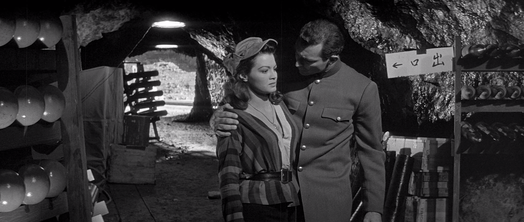 Taking place towards the end of the French phase of the Vietnam War, Samuel Fuller's China Gate tells the story of a group of soldiers recruited by the French army to travel through enemy territory in order to destroy a significant weapons depot. One of the men recruited happens to be a half-Asian woman known as Lucky Legs, who agrees to help the French mission if they agree to take her half Chinese/half American son to America. Sergeant Brock, another member of this group, happens to be this boy's son, though he has rejected all of his parental duties due to his son's Chinese appearance. These two, together with an assorted group of military personnel set out to complete their mission at all costs. Samuel Fuller's China Gate works on multiple levels, being a gritty, raw account of the perils of war while simultaneously commenting on racism in society. As one could expect from a Fuller film, this is a brutal war film that doesn't hold back from showing the true cost of war. Fuller captures how a single life is almost viewed as insignificant during wartime, being a minor cog in the grand machine - the overall mission assigned by their superiors. China Gate is beautifully composed by renowned cinematographer Joseph F. Biroc, who uses stylish camera movements and beautifully rendered black and white cinematography that only enhances the experience. The emotional throughline of the film is centered around the romance between Sergeant Brock and Lucky Legs. Brock is a racist man who cannot even accept his own flesh and blood because he's part Chinese. The narrative quickly exposes the absurdity of his racism, exposing the nature of ignorance so apparent in racism. While it isn't flat out terrible, the romance narrative as a whole is uninteresting, being very heavy-handed and forced down the viewers throat. I have no idea if this is even true but it does feel like something Fuller was forced to do, as it seems quite unlike him. China Gate isn't one of the top notch films from this great director but it's a strong film in its own right, being both a thrilling action film and slight commentary on the absurdity of racism. |
AuthorLove of all things cinema brought me here. Archives
June 2023
|

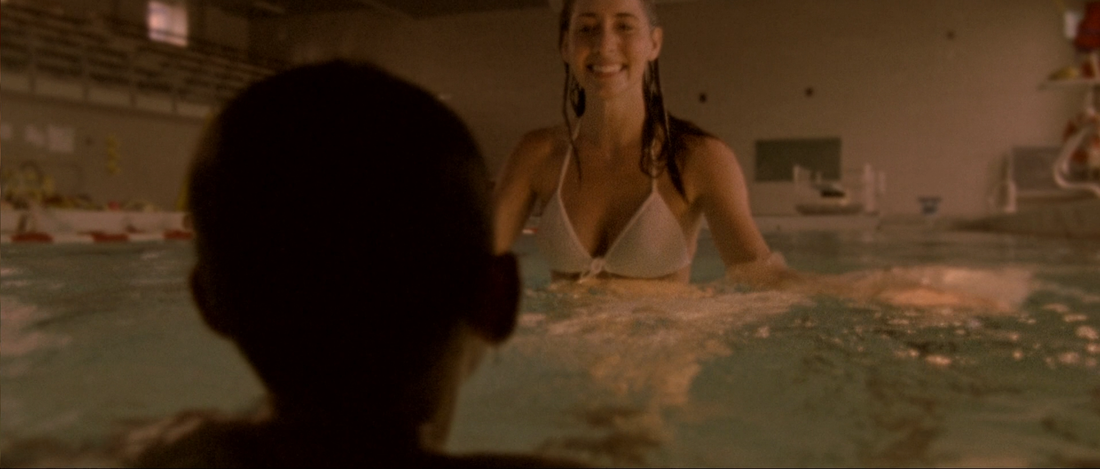
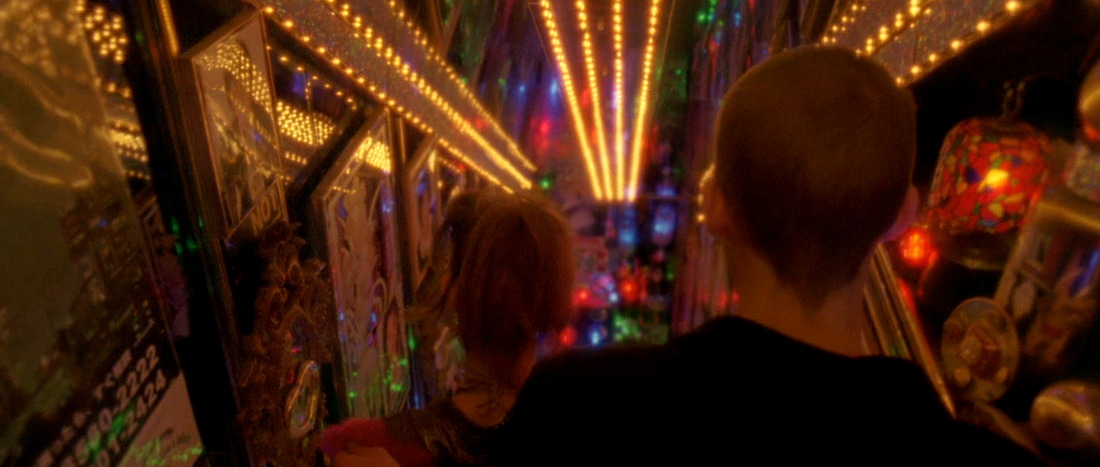
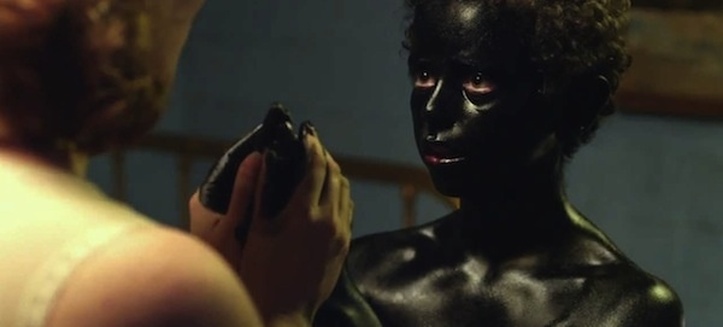
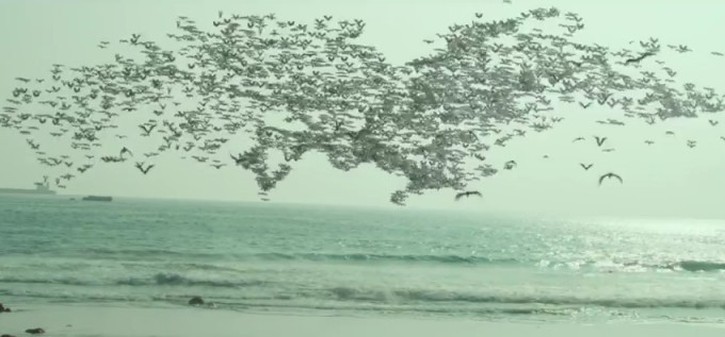
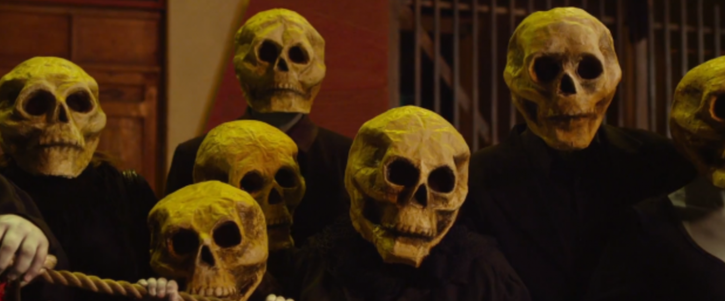
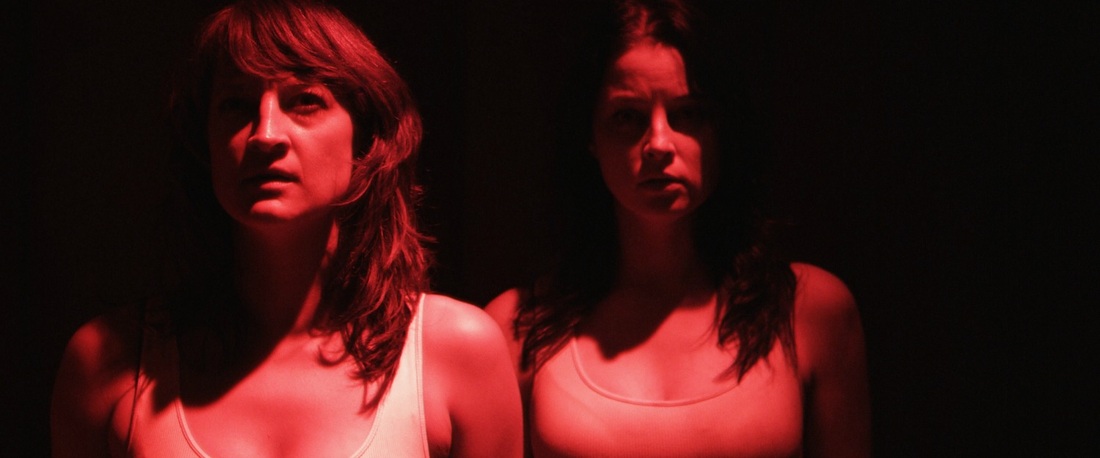
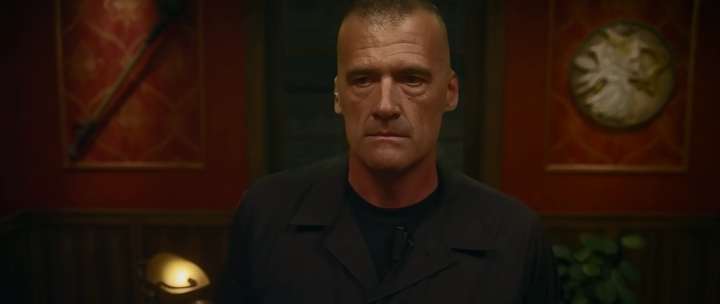

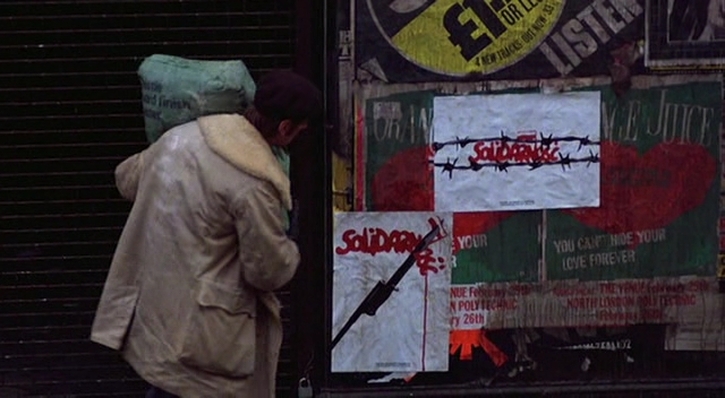
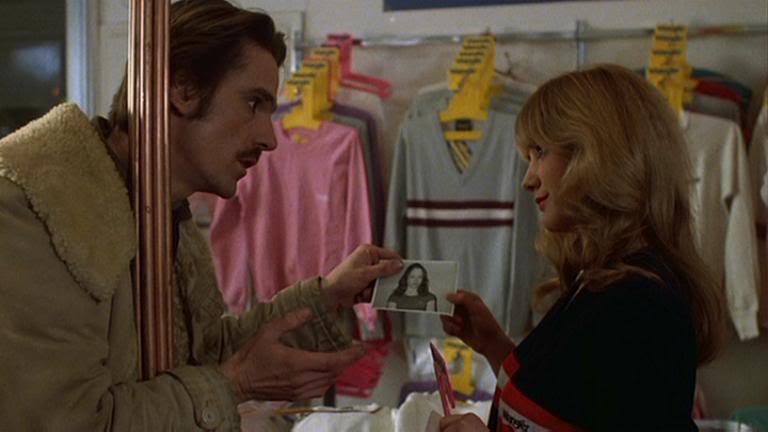
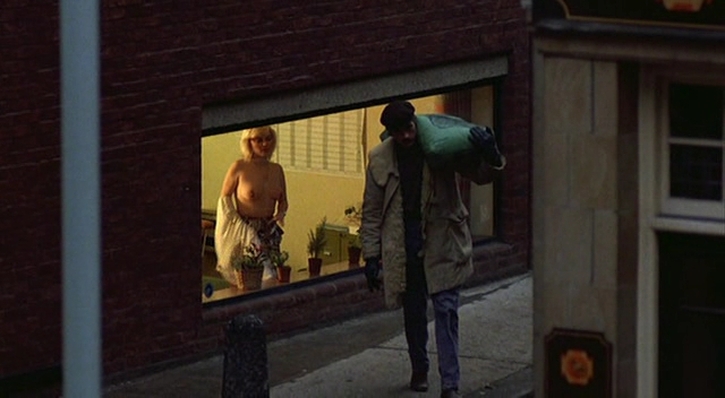
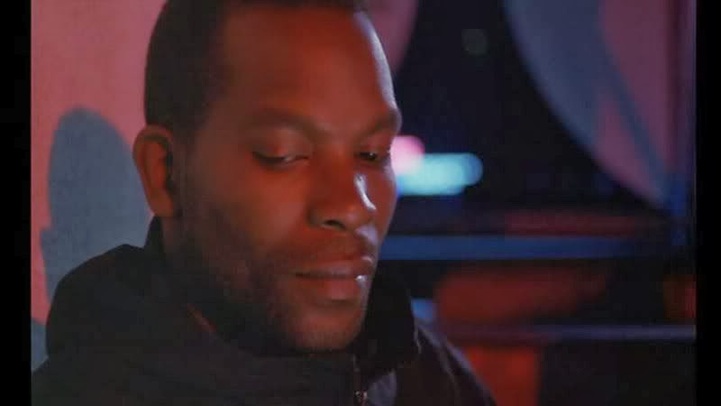
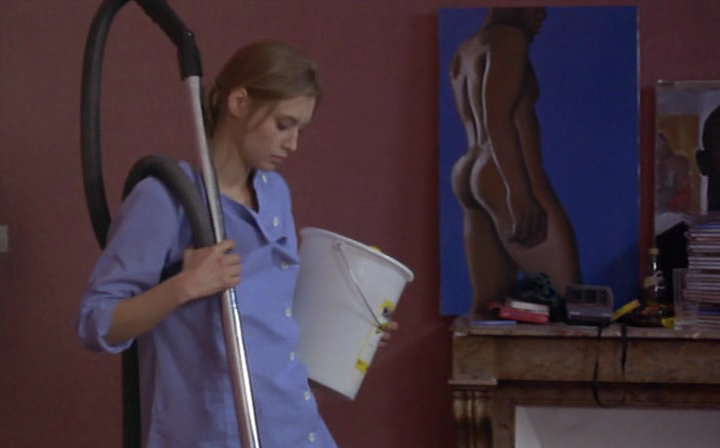
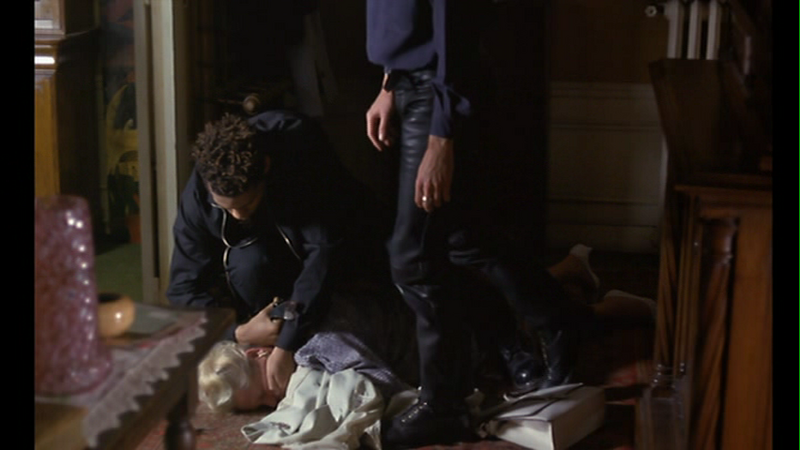
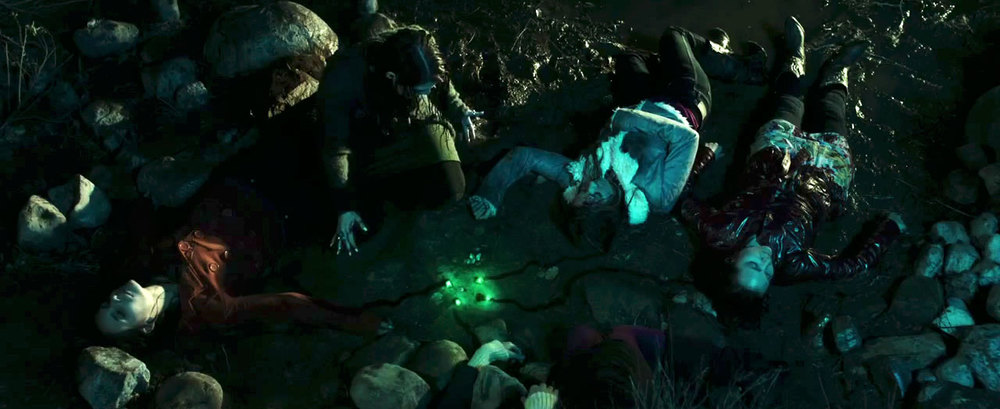
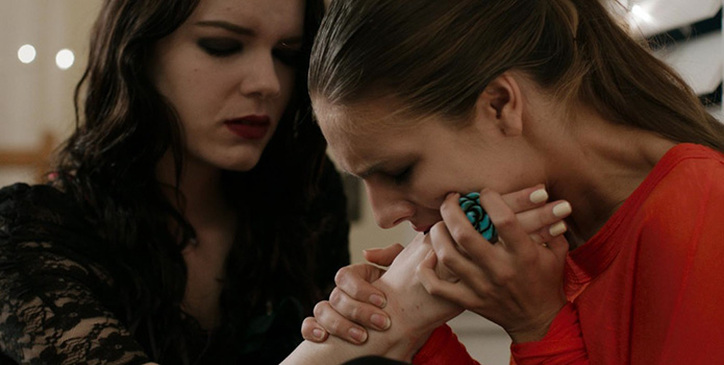

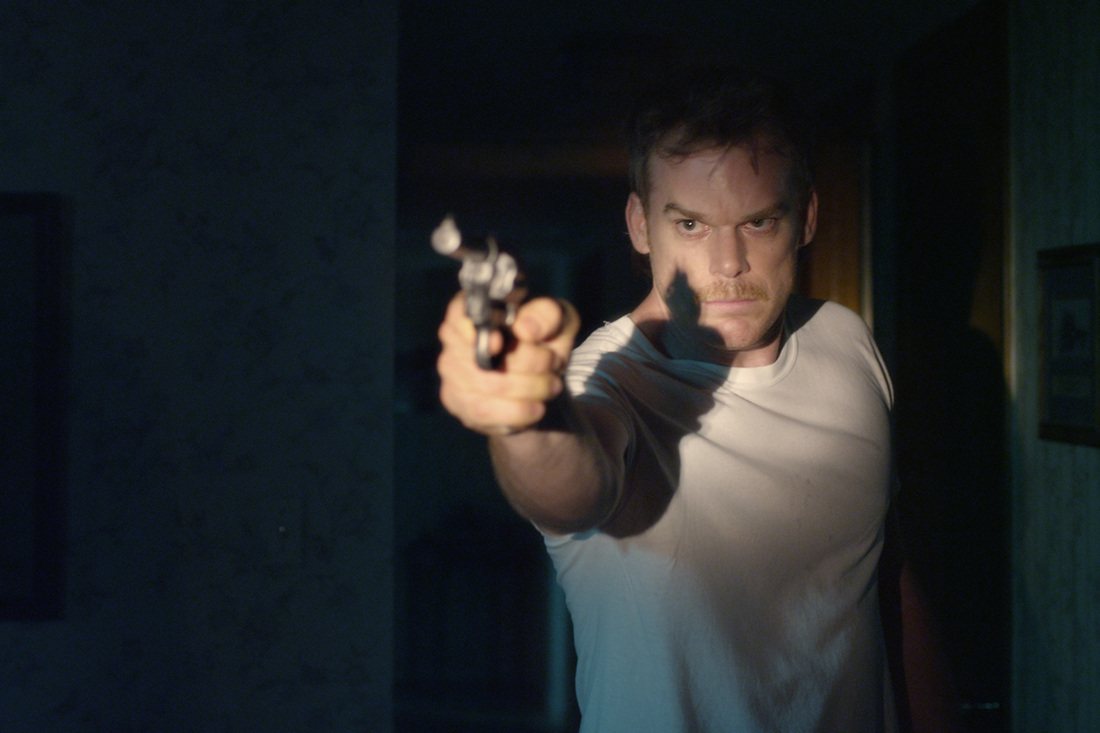
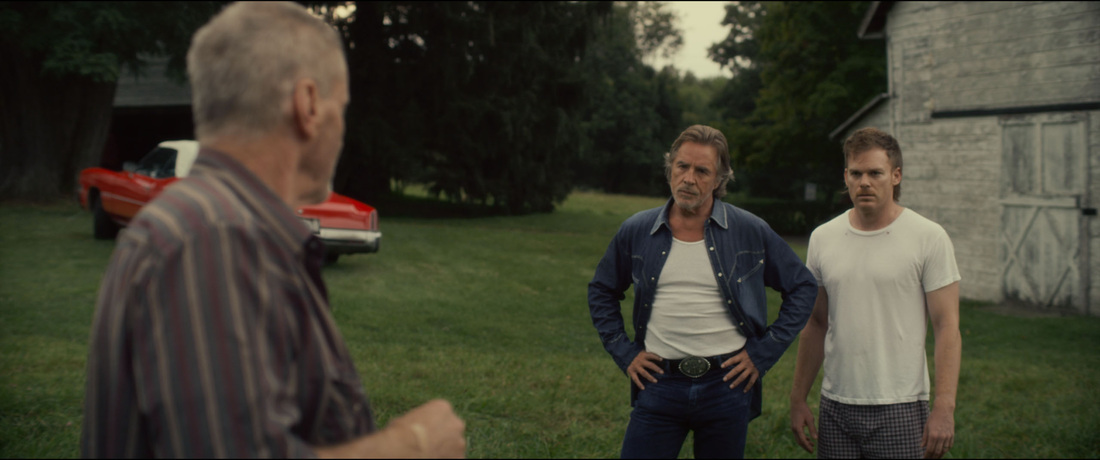
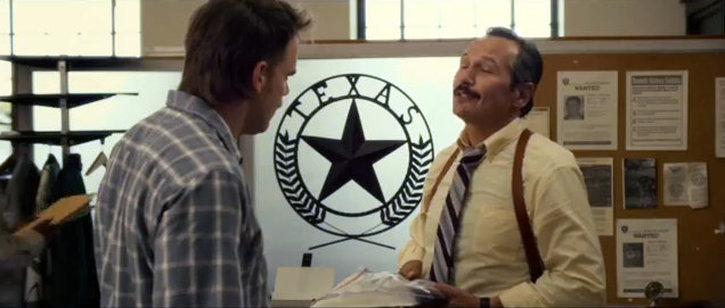
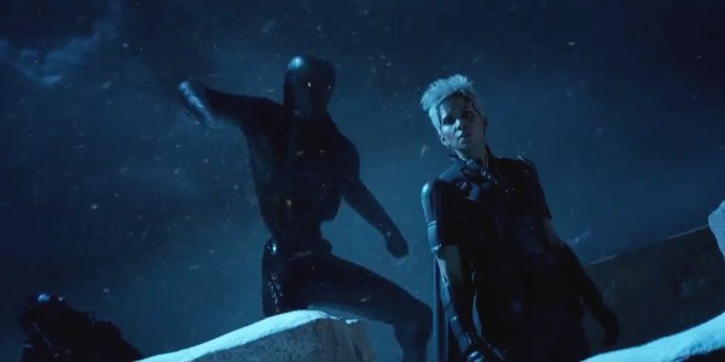
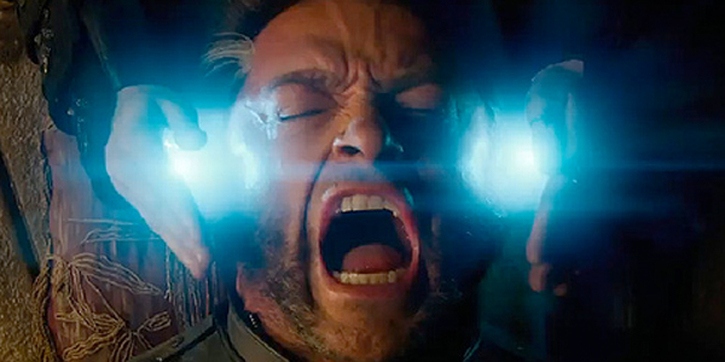
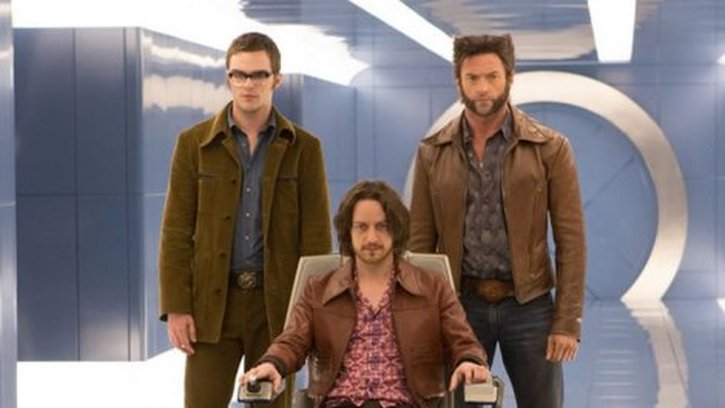
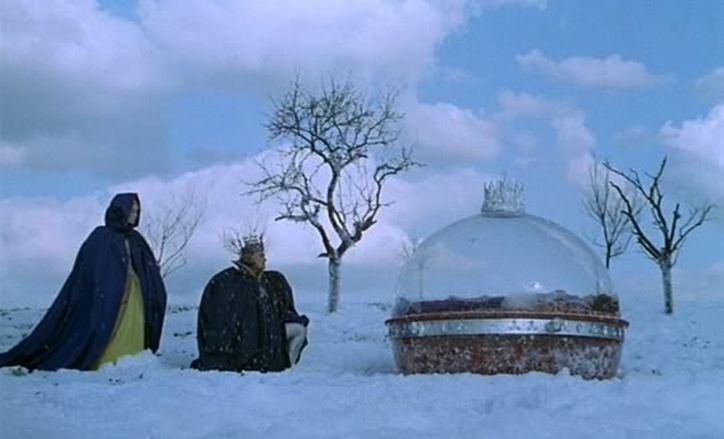
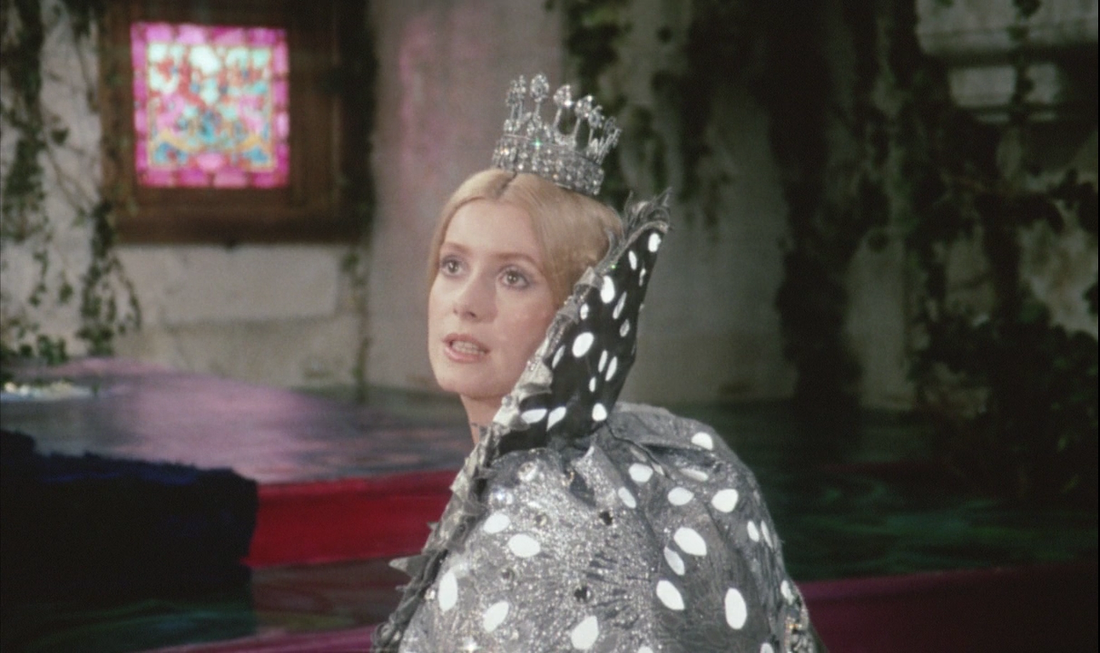
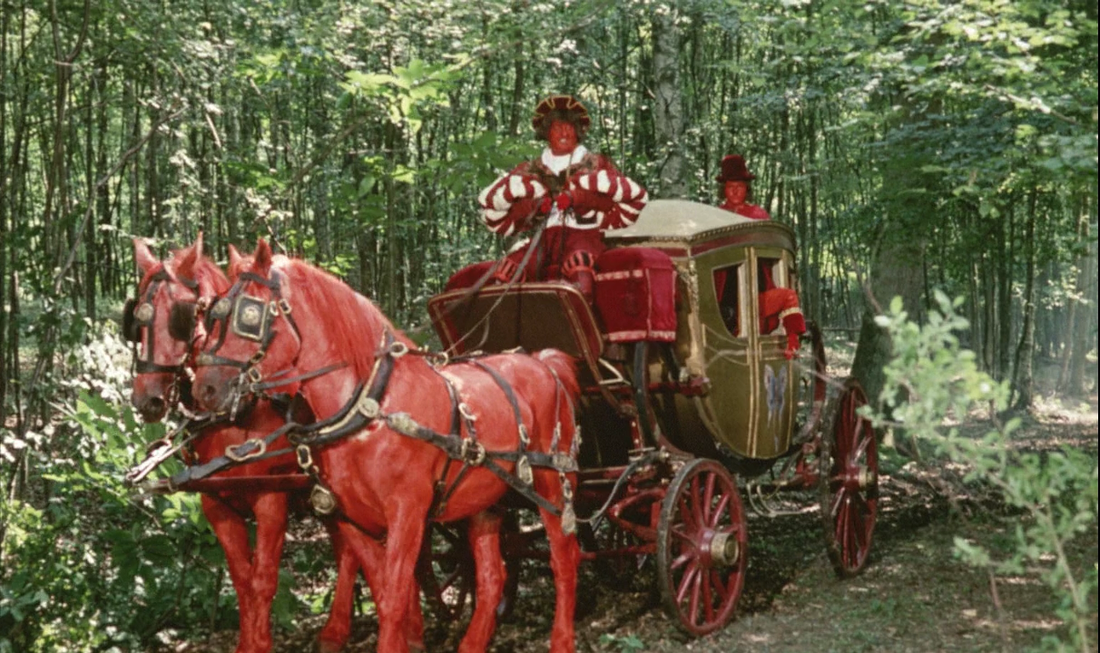
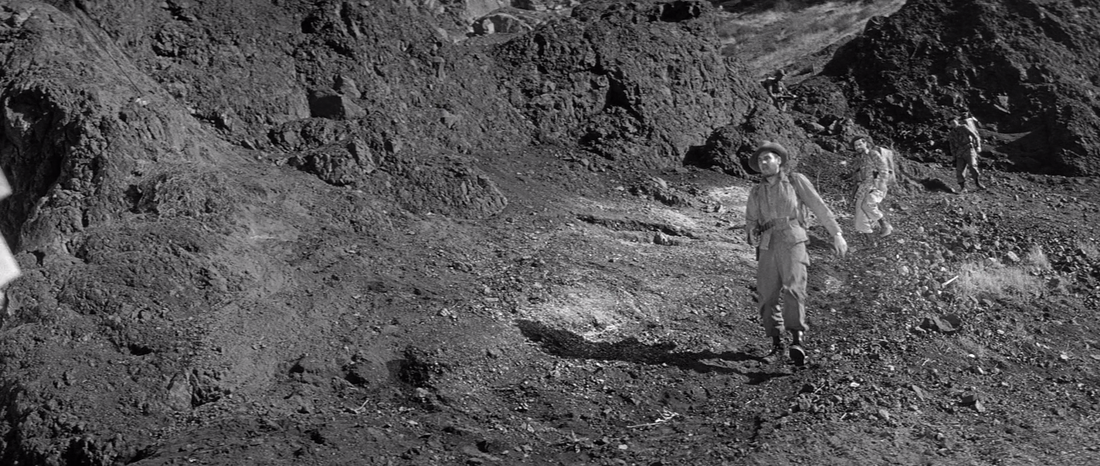
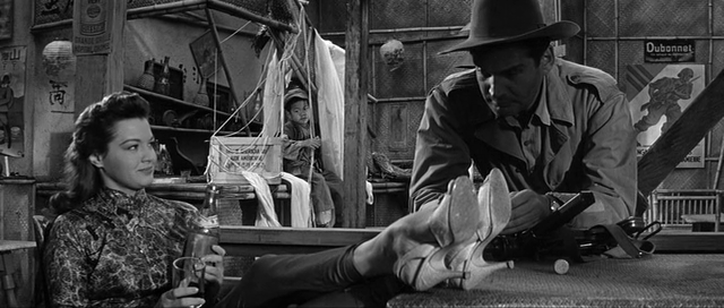
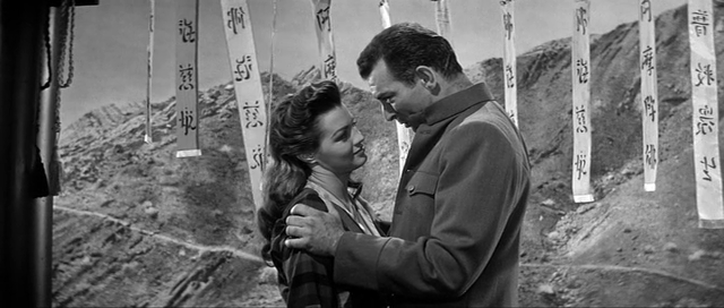
 RSS Feed
RSS Feed
